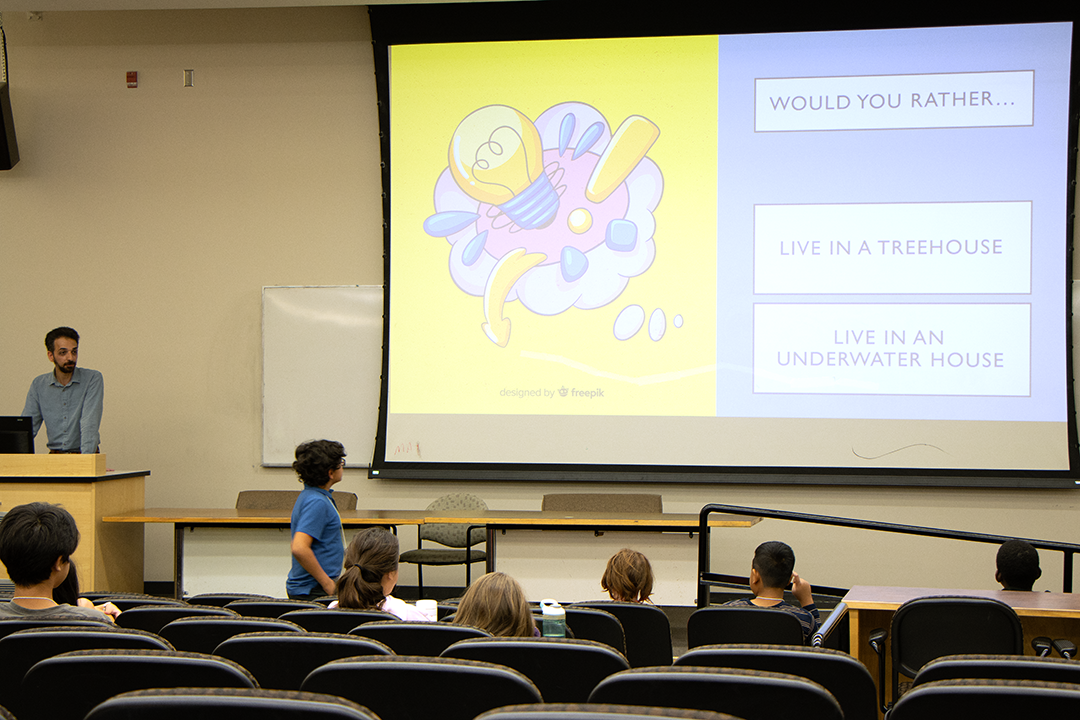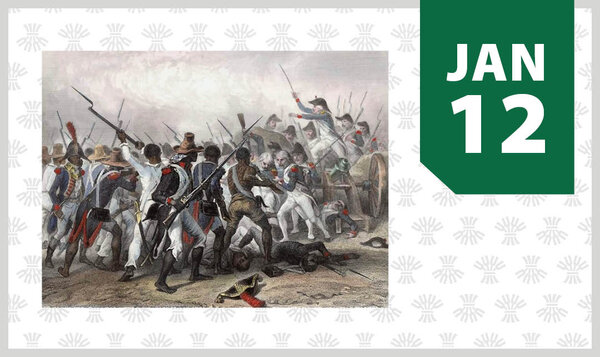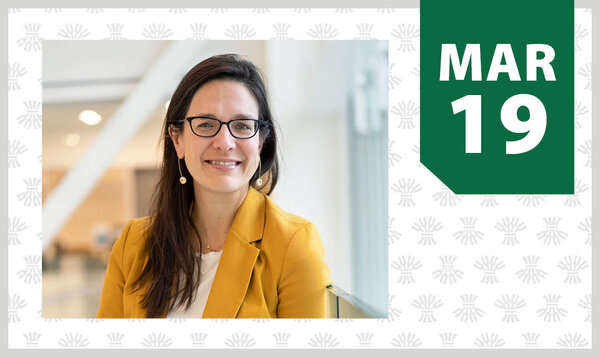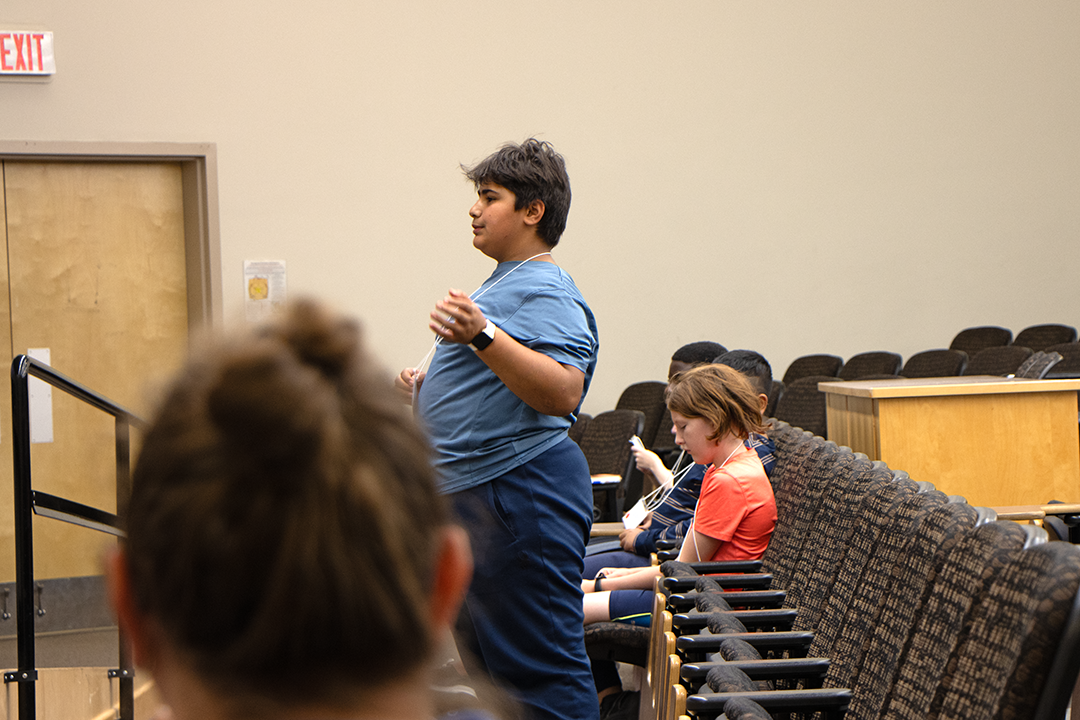
USask philosophy class encourages kids to ask the ‘big questions’
Philosophy for Children class examines important issues, develops critical thinking skills
By Kristen McEwen
This summer, University of Saskatchewan (USask) students helped kids think about and discuss some of humanity’s oldest and biggest ideas.
Through the free program called “Big Questions for Bright Young Minds,” USask students registered in a special topic philosophy course facilitated weekly philosophical discussions with groups of children aged 10 to 12 as part of their coursework this summer. The program for kids was offered in partnership with and funded by the Saskatoon Open Door Society.
“I think kids are quite naturally philosophers—they really are. They ask big questions very naturally,” said Erin Greer, philosophy sessional lecturer for the course “Philosophy in Education: An Introduction to Philosophy for Children.”
Throughout the spring/summer term, students in Greer’s class gathered every Thursday to discuss course materials and plan the next hands-on session for children. After the university class finished, her students set up classrooms in the Arts Building on campus for the Philosophy for Children sessions.
Greer's students encouraged children to discuss some of the big questions they may have about philosophical topics, including the nature of reality, freedom, justice, and morality.
Philosophy graduate student Hannah Tremblay noted that the children who signed up for the program were encouraged to think critically.
“(The program) was a really cool structure that’s free for the kids—providing an opportunity for kids to actually engage critically with some really hard questions that they might not get a chance to engage with their parents at home, or at school,” Tremblay said.
“The general structure (of philosophy) is so fun,” Tremblay added. “I think that’s why it’s so fun for the kids too because there’s a lot of room for creativity and imagination that often make really great points.”
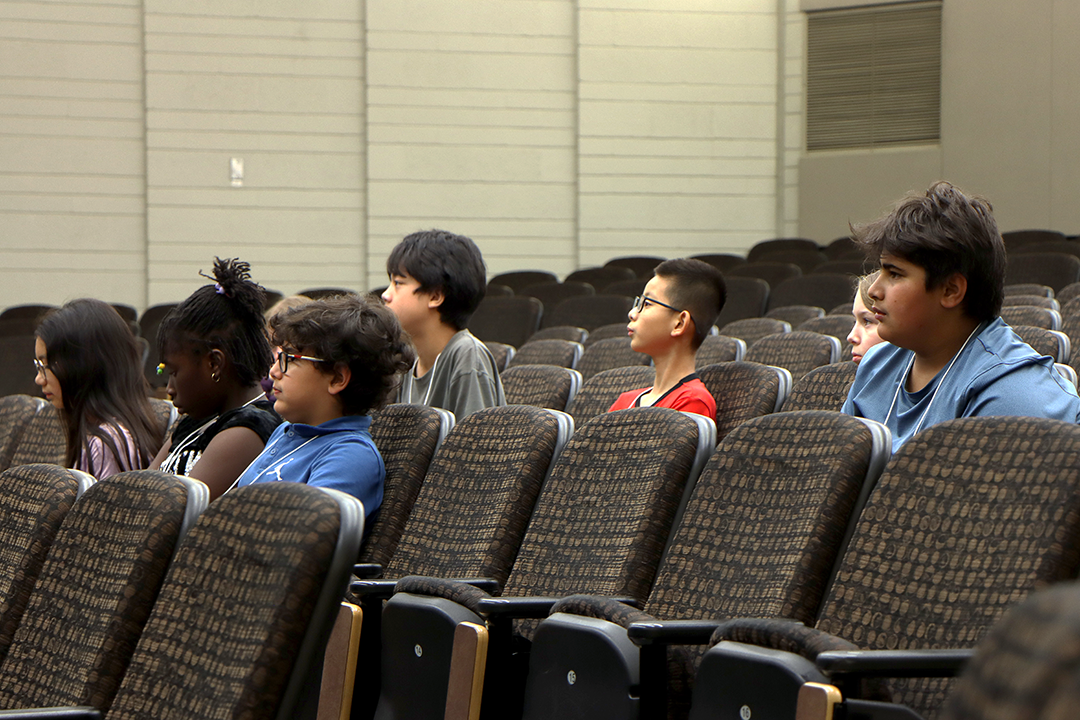
Saskatoon Open Door Society cultural bridging director, Mehdi Ebrahimpour, and community development worker, Fatemeh Qasemi, facilitate and planned the sessions for kids. Sessions begin with an icebreaker, designed to help children feel comfortable using their voices. Many kids in the program are newcomers to Canada, so the opportunity to practice speaking skills was especially valuable, Greer said.
During one session, the group of children was encouraged to consider the role of freedom in relation to rules. They were provided with an example of freedom—a school in New Zealand with no rules. The children split up into smaller discussion groups to talk about the video further.
This is the second iteration of Philosophy for Children at USask. Greer previously taught a similar undergraduate class in partnership with the Saskatoon Public School division between 2013 and 2015. Due to its previous success, Greer was confident there would be interest from parents and children alike.
“I think it’s really important for kids to have a place to ask big questions, where they can consider ideas from their peers —not just from adults —but where they can find a way to discuss these questions with their peers,” Greer said. “And, in a facilitated way—where kids are asked about their views and asked about their assumptions.”
During sessions, children learn how to reason, and how to work together, even when they don’t agree with one another. With ongoing current events and increased access to news via social media, children have concerns about what’s happening in the world.
Political studies student Arhama Ahmad said that children in the program think and discuss societal issues often.
“I could see the gears turning in their heads,” Ahmad said. “Seeing the kids re-evaluate their ideas—I think that’s the best part because (the program) is promoting critical thinking, which I don’t think our society has enough of.”
One of the goals of Philosophy for Children is examining ideas separately from the person who believes or articulates them, Greer said.
“We don’t have to get so attached to (ideas), such that by rejecting the idea, we’re rejecting the person,” she said. “After all, we want to encourage changing our minds in the light of reasons and new experiences, which helps to build a sense of collaboration and a fuller appreciation for democracy at its best right from a young age.”
Greer hopes to offer Philosophy for Children sessions jointly with the Saskatoon Open Door Society and a version of the Special Topics course again next year.
“It’s an opportunity to expose kids to big ideas,” Greer said. “Ideas that philosophers have been thinking and talking about and debating for thousands of years.”
